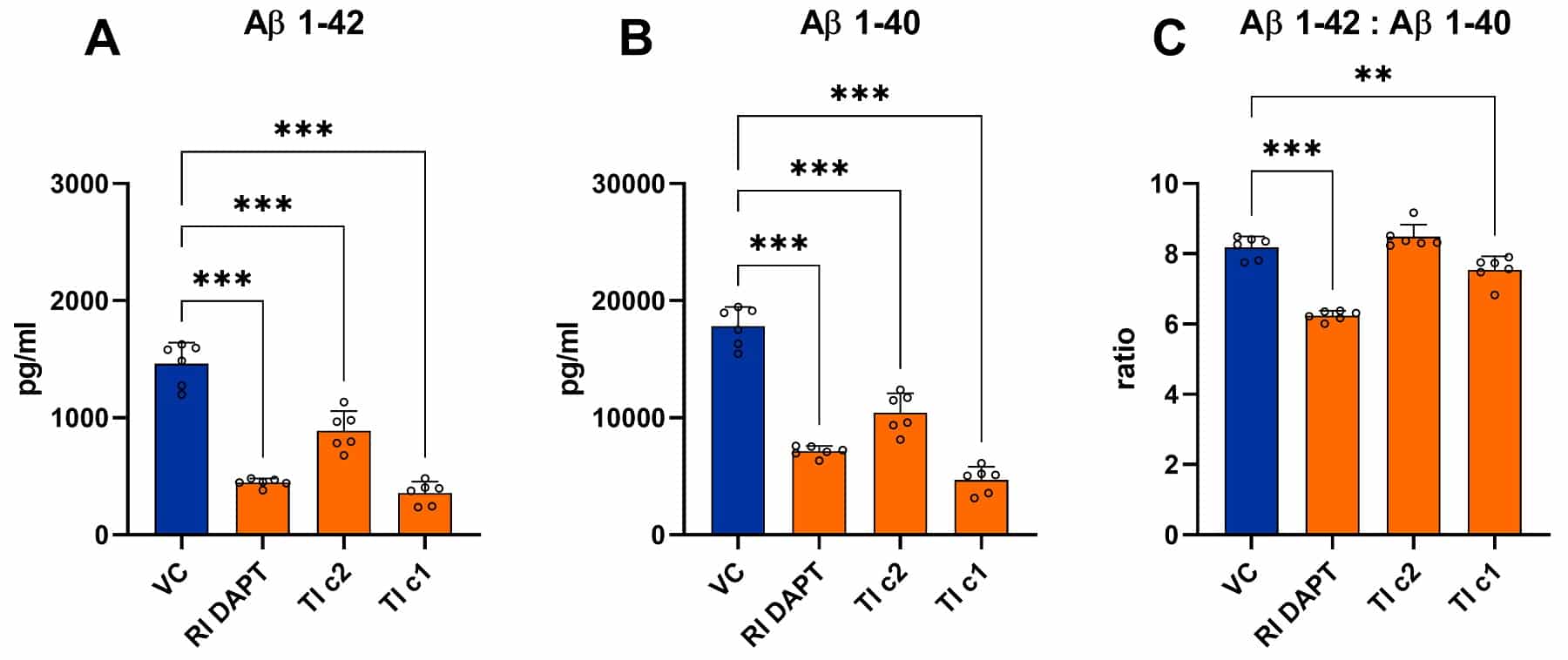Generation of Aβ species is a hallmark of Alzheimer’s Disease. QPS Neuropharmacology provides several cell culture models to identify pharmacological agents that interfere with the cleavage of APP by analyzing the generation of different Aβ and sAPP species by immunosorbent assay.
- H4 neuroglioma cells overexpressing human APPK595N/M596L, the Swedish double mutation, enable to analyze compounds for their effects on the human mutant APP profile.
- Primary rat/mouse hippocampal neurons are phenotypically closer to adult neurons as they present an extended dense network of neuronal processes.
- Primary chicken telencephalic neurons secrete endogenous wild type Aβ peptides, including Aβ38, Aβ40 and Aβ42. Both human and chicken Aβ42 are identical in sequence. Therefore, this model is suitable for studying effects on processing of endogenous wild type APP in primary neurons.

Figure: Aβ peptide secretion in APPK595N/M596L overexpressing cells.
H4 cells overexpressing human APPK595N/M596L secrete high levels of Aβ1-42 (A) and Aβ1-40 (B) determined by an immunosorbent assay. The γ-secretase inhibitor DAPT reduces Aβ formation in H4-hAPPK595N/M596L cells and affects the Aβ42 to 40 ratio (C) . Two concentrations of a developmental compound were also able to reduce Aβ secretion in a dose dependent manner. Mean + SEM; One-way ANOVA with Bonferroni‘s post hoc test; **p<0.01, ***p<0.001.
